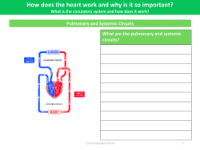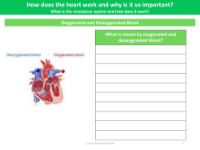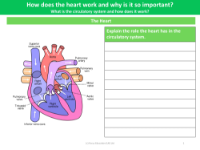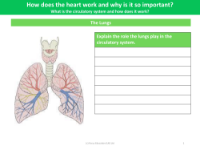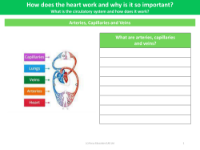Circulatory system - Info sheet
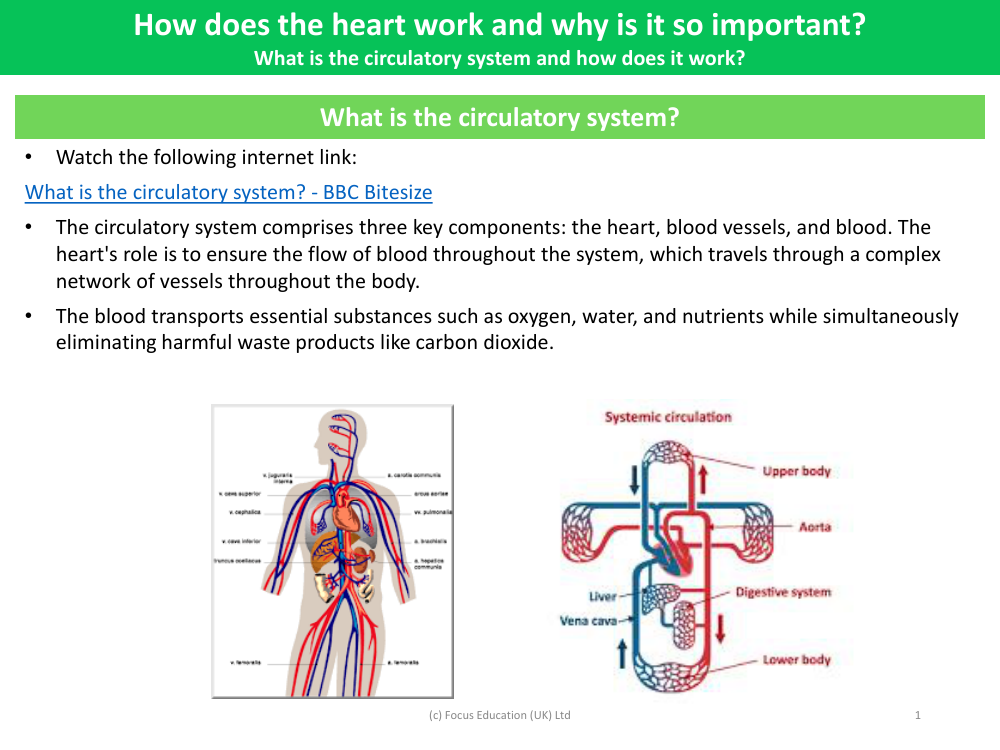
Science Resource Description
The circulatory system is an essential part of the human body, comprising three main elements: the heart, blood vessels, and blood itself. At the core of this system is the heart, a powerful muscle whose primary function is to pump blood throughout the body, ensuring that this vital fluid circulates through an intricate network of blood vessels. This circulation process is crucial for the transport of life-sustaining substances such as oxygen and nutrients to various body tissues, as well as for the removal of waste products, including carbon dioxide, which are then expelled from the body.
Understanding how the heart operates and its significance is fundamental to grasping the mechanics of the circulatory system. The heart works tirelessly, contracting and relaxing rhythmically to push blood through the vast maze of arteries, veins, and capillaries that make up the blood vessel system. This relentless activity is crucial because it maintains the continuous flow of blood, which carries essential components to where they are needed and removes unwanted substances. The efficiency of the circulatory system is vital for overall health, as it affects every cell and organ in the body.


